
Al Ula: The Timeless Oasis of Saudi Arabia
Nestled in the heart of northwestern Saudi Arabia, Al Ula is a hidden gem waiting to be discovered. This ancient city is home to stunning landscapes, rich history, and unparalleled archaeological treasures. Al Ula is a place where the past meets the present, offering a unique blend of natural beauty and cultural heritage. One of the most remarkable features of Al Ula is its dramatic desert scenery. Towering sandstone cliffs, sprawling palm groves, and striking rock formations make it a paradise for nature lovers and adventure seekers alike. The Hegra Archaeological Site, also known as Mada'in Saleh, is a UNESCO World Heritage site that boasts well-preserved tombs and monuments carved into the rock, dating back to the Nabataean Kingdom. Al Ula's vibrant history is also reflected in its ancient ruins and traditional mud-brick houses. The Old Town of Al Ula offers a glimpse into the city's storied past, with its labyrinthine streets and ancient architecture. Visitors can explore the Al Ula Museum, which houses a collection of artifacts that tell the story of the region's rich cultural heritage. In addition to its historical and natural attractions, Al Ula offers a range of activities for visitors. From hot air balloon rides over the stunning desert landscape to guided tours of the archaeological sites, there is something for everyone. The city also hosts a variety of cultural events and festivals throughout the year, providing a unique opportunity to experience the local traditions and customs.
Local tips in Al Ula
- Visit during the cooler months of October to April for a more comfortable experience.
- Book guided tours in advance, especially for the Hegra site, to ensure availability.
- Wear comfortable, breathable clothing and sturdy walking shoes, as you'll be exploring rugged terrain.
- Stay hydrated and carry water with you, as the desert climate can be very dry.
- Take a hot air balloon ride at sunrise for breathtaking views of the desert landscape.
- Check out local festivals and cultural events to fully immerse yourself in the local culture.
- Respect local customs and dress modestly, as Al Ula is a conservative region.
Al Ula: The Timeless Oasis of Saudi Arabia
Nestled in the heart of northwestern Saudi Arabia, Al Ula is a hidden gem waiting to be discovered. This ancient city is home to stunning landscapes, rich history, and unparalleled archaeological treasures. Al Ula is a place where the past meets the present, offering a unique blend of natural beauty and cultural heritage. One of the most remarkable features of Al Ula is its dramatic desert scenery. Towering sandstone cliffs, sprawling palm groves, and striking rock formations make it a paradise for nature lovers and adventure seekers alike. The Hegra Archaeological Site, also known as Mada'in Saleh, is a UNESCO World Heritage site that boasts well-preserved tombs and monuments carved into the rock, dating back to the Nabataean Kingdom. Al Ula's vibrant history is also reflected in its ancient ruins and traditional mud-brick houses. The Old Town of Al Ula offers a glimpse into the city's storied past, with its labyrinthine streets and ancient architecture. Visitors can explore the Al Ula Museum, which houses a collection of artifacts that tell the story of the region's rich cultural heritage. In addition to its historical and natural attractions, Al Ula offers a range of activities for visitors. From hot air balloon rides over the stunning desert landscape to guided tours of the archaeological sites, there is something for everyone. The city also hosts a variety of cultural events and festivals throughout the year, providing a unique opportunity to experience the local traditions and customs.
When is the best time to go to Al Ula?
Iconic landmarks you can’t miss
AlUla Old Town
Discover the rich cultural heritage and breathtaking architecture of AlUla Old Town, an unforgettable journey through Saudi Arabia's ancient history.
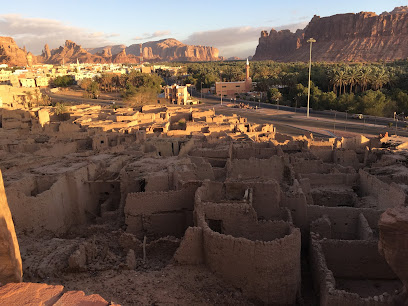
Harrat Viewpoint
Experience the stunning panoramas of Harrat Viewpoint, where history and nature come together in AlUla's breathtaking landscapes.
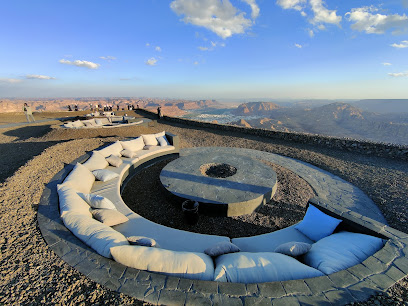
AlUla Tantura
Discover the enchanting AlUla Tantura, a historical landmark that reveals the rich heritage of Saudi Arabia amidst stunning landscapes.
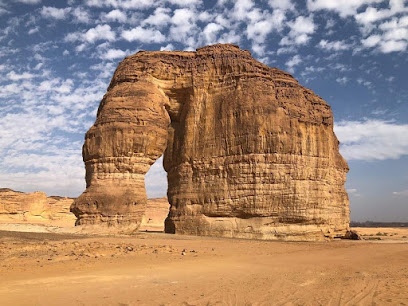
Dadan
Explore Dadan, an ancient historical landmark in AlUla, where stunning rock formations meet rich archaeological heritage, revealing the secrets of a bygone era.
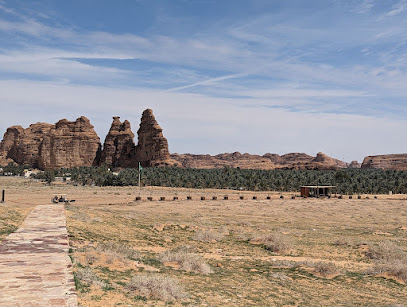
AlUla Park
Discover the breathtaking landscapes and rich cultural heritage at AlUla Park, a premier hiking destination in Saudi Arabia.
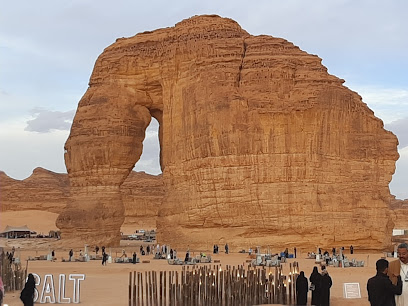
AlUla Old Town Village
Explore the captivating AlUla Old Town Village, a UNESCO World Heritage Site that showcases Saudi Arabia's rich history and stunning natural beauty.
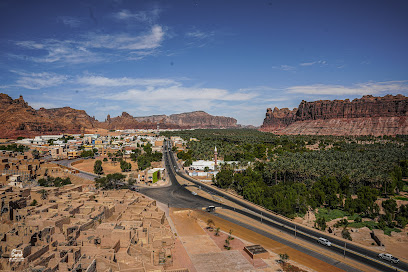
Daimumah Western Hub
Explore Daimumah Western Hub in AlUla – a breathtaking blend of nature and history, perfect for families and adventurers seeking unforgettable experiences.
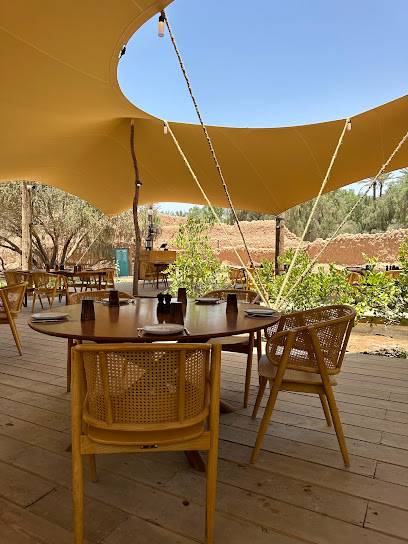
Al-Ula castle
Explore the captivating Al-Ula Castle, an ancient fortress offering breathtaking views and deep historical significance in Saudi Arabia's stunning landscape.
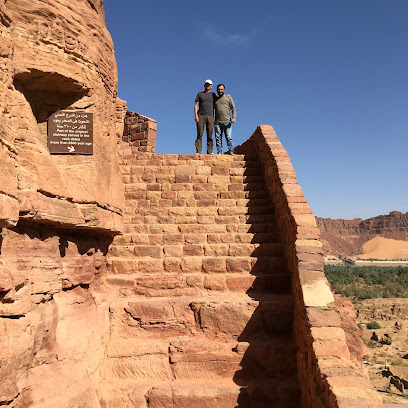
AlJadidah Arts District
Immerse yourself in the artistic charm of AlJadidah Arts District, a cultural landmark in AlUla, blending creativity and history in a stunning setting.
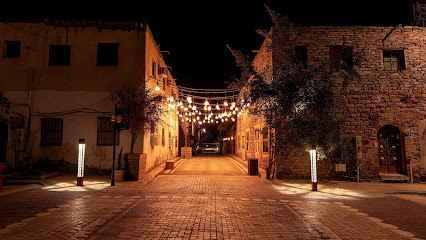
Oasis Heritage Trail
Discover the breathtaking landscapes and rich history of the Oasis Heritage Trail in AlUla, a premier hiking destination in Saudi Arabia.
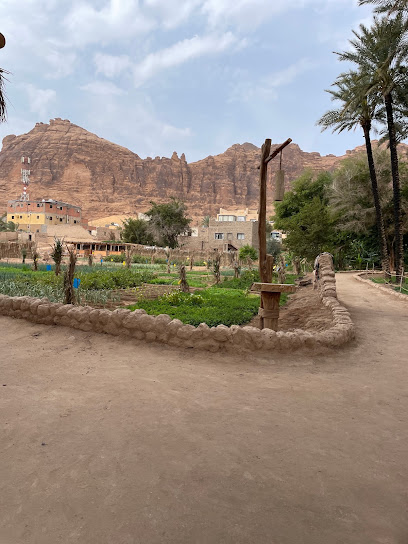
Abu Raed Museum
Explore the captivating history and cultural heritage of Saudi Arabia at the Abu Raed Museum in AlUla, a must-visit for every traveler.
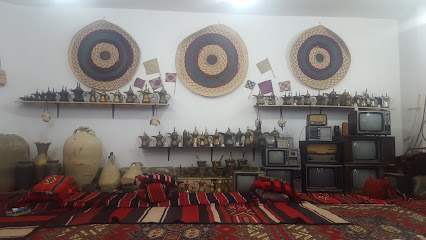
محافظة العلا
Explore the breathtaking landscapes and ancient wonders of AlUla, a unique Saudi Arabian treasure that captivates every traveler.
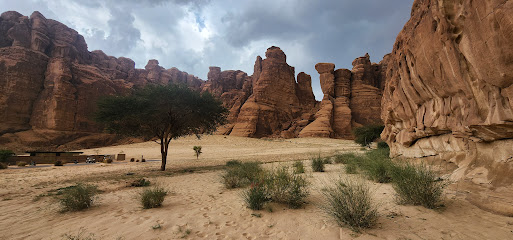
Dates Palm Swings
Experience the thrill of swinging through the picturesque date palms of AlUla, where adventure meets breathtaking desert landscapes.
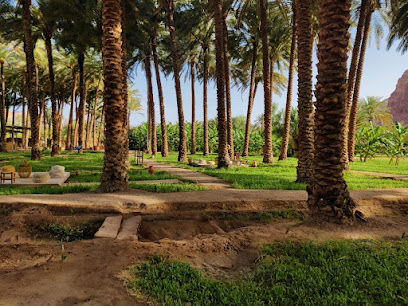
Al Mahash Viewpoint
Experience the breathtaking views and rich history at Al Mahash Viewpoint, a must-visit landmark in the stunning landscape of AlUla, Saudi Arabia.
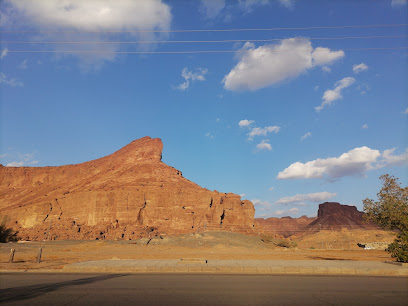
Dadan Heritage Trail
Discover the breathtaking landscapes and rich history of AlUla on the Dadan Heritage Trail, a memorable hiking experience for all adventurers.
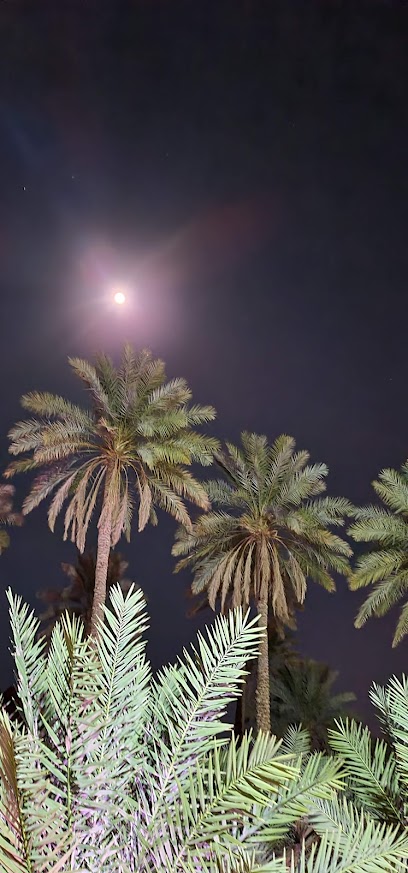
Unmissable attractions to see
Winter park | المنتزه الشتوي
Experience the tranquility of Winter Park in AlUla, where nature meets community in a stunning oasis of greenery.
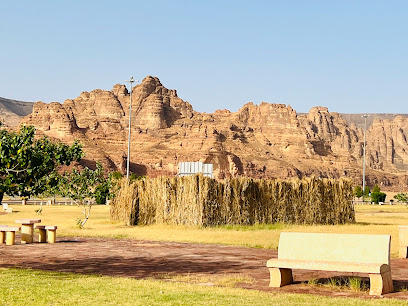
Harrat Viewpoint
Discover the stunning vistas and rich heritage at Harrat Viewpoint, a scenic observation deck in AlUla, Saudi Arabia.
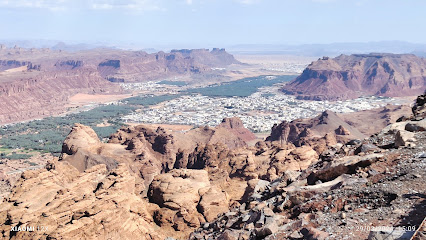
AlUla Tantura
Explore the historical marvels and natural beauty of AlUla Tantura, a UNESCO World Heritage site showcasing ancient civilizations and stunning landscapes.
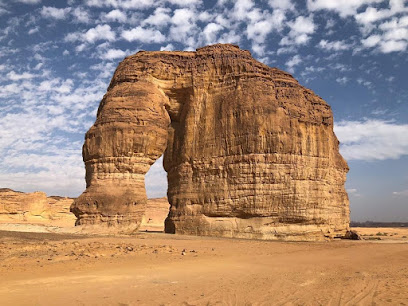
Hegra South Gate
Explore Hegra South Gate, a UNESCO World Heritage Site showcasing the magnificent ruins of the Nabatean civilization amidst stunning desert landscapes.
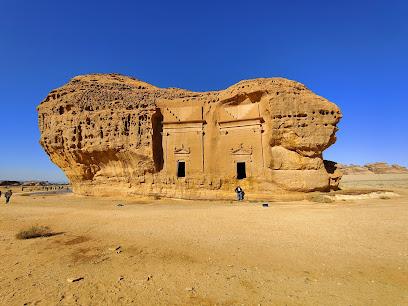
Dadan
Explore Dadan, an open-air museum in AlUla, revealing the ancient history and remarkable heritage of Saudi Arabia's enchanting landscapes.
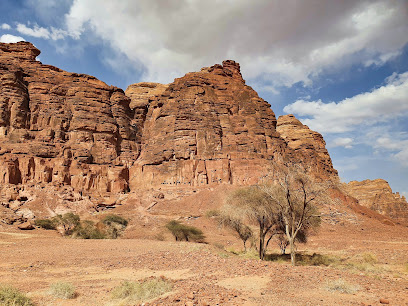
العلا ,
Discover the rich history and stunning landscapes of AlUla, a UNESCO World Heritage site that offers a window into ancient civilizations.
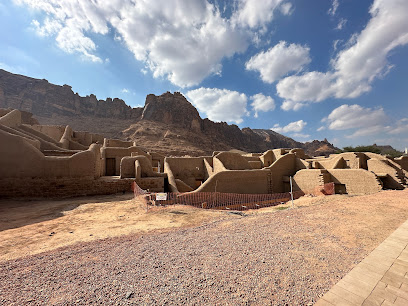
Al Thameed Park
Experience the tranquil beauty of Al Thameed Park in AlUla, a perfect spot for relaxation, family fun, and breathtaking landscapes.
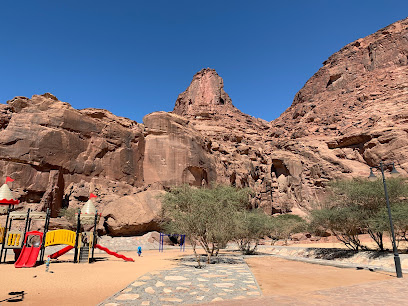
Reesha Santuary and Resort
Discover tranquility at Reesha Sanctuary and Resort in AlUla, where stunning landscapes and serene gardens create the perfect getaway for nature lovers.
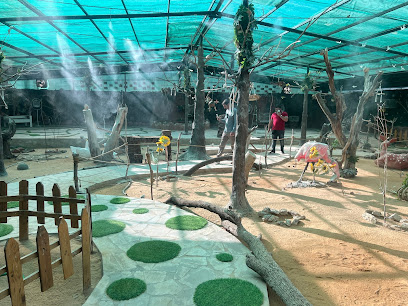
Daimumah
Experience the serene beauty of Daimumah Park in AlUla, where nature meets tranquility amidst stunning landscapes.
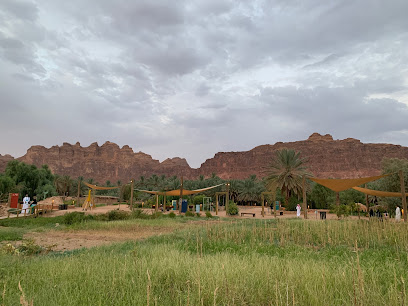
AlUla Adventure Hub | مركز العلا للمغامرة
Experience the thrill of adventure sports at AlUla Adventure Hub, where stunning landscapes meet exhilarating activities in the heart of Saudi Arabia.
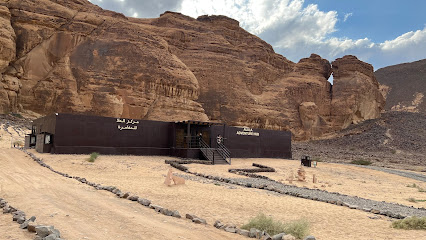
Daimumah Eastern Hub
Explore the breathtaking landscapes and rich heritage at Daimumah Eastern Hub, a premier tourist attraction in AlUla, Saudi Arabia.
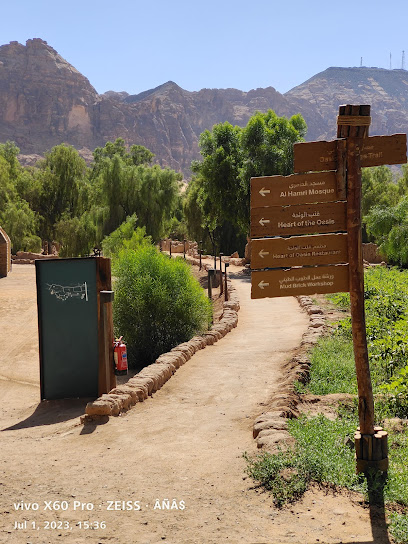
Daimumah Western Hub
Explore the natural beauty and rich history of Daimumah Western Hub in AlUla, Saudi Arabia, a top destination for every traveler.
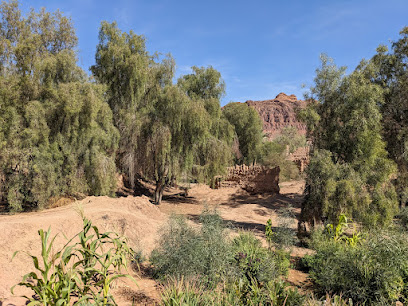
Vessel Hole Rock
Uncover the stunning natural beauty and unique geological formations at Vessel Hole Rock in AlMu'tadil, Saudi Arabia, a must-visit destination for every traveler.
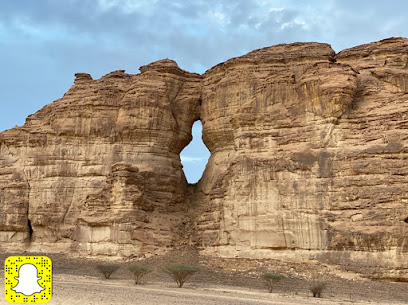
Live the Moment Farm
Discover the serene beauty and rich culture of AlUla at Live the Moment Farm, an enchanting destination for nature lovers and curious travelers.
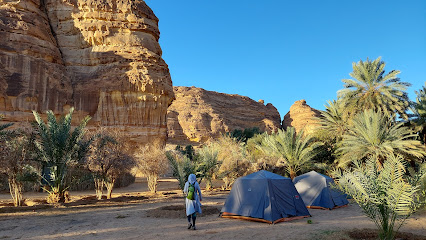
AlJadidah Arts District
Discover the AlJadidah Arts District, where creativity and culture intertwine in the heart of AlUla, showcasing the best of local and contemporary art.
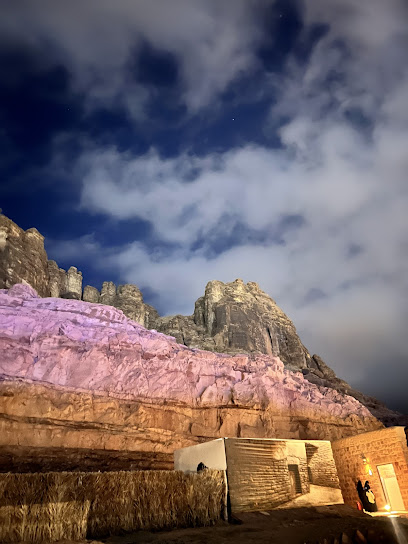
Essential places to dine
Kudu - Tantura
Discover delicious fast food at Kudu - Tantura in AlUla: from breakfast classics to mouth-watering desserts.
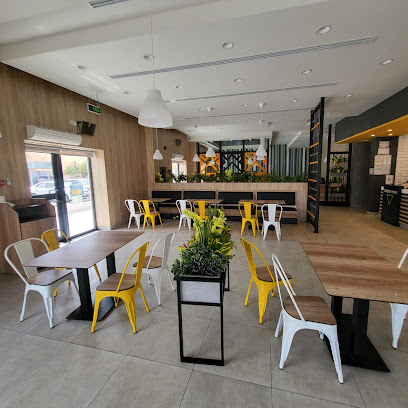
AlUla Heritage Restaurants & Kitchens
Discover authentic Arabian flavors at AlUla Heritage Restaurants & Kitchens—where tradition meets taste in Saudi Arabia's historic landscape.
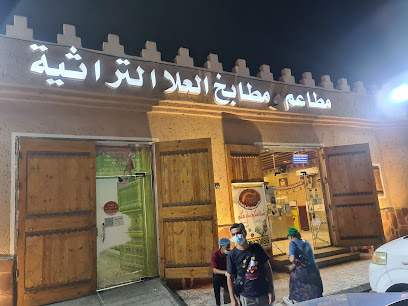
Heritage Garden Restaurant
Discover authentic Saudi cuisine amidst lush gardens at Heritage Garden Restaurant in AlUla—a culinary retreat rich in flavor and tradition.
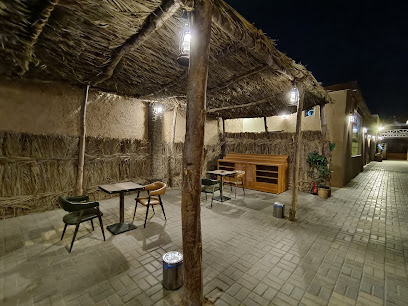
Tetra Pizza
Savor the best pizzas in AlUla at Tetra Pizza - where fresh ingredients meet delicious flavors.
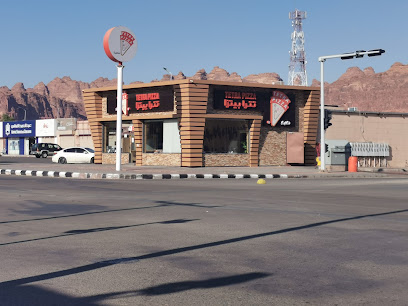
Somewhere
Experience exceptional dining at Somewhere in AlUla, where local flavors meet international cuisine amidst stunning landscapes.
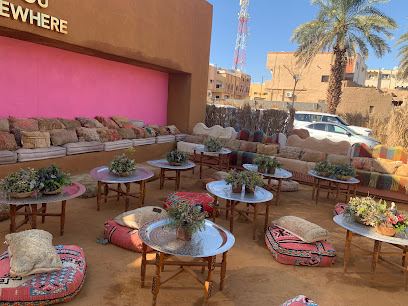
Derwas Corner Restaurant
Discover authentic Saudi flavors at Derwas Corner Restaurant in AlUla - where culinary tradition meets warm hospitality.
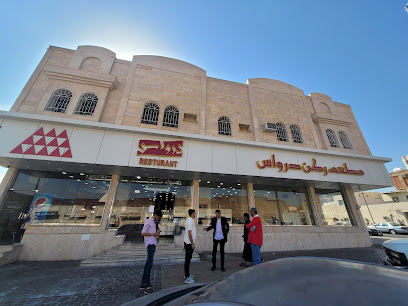
Tawouk
Discover the flavors of Saudi Arabia at Tawouk in AlUla - where authentic cuisine meets warm hospitality.
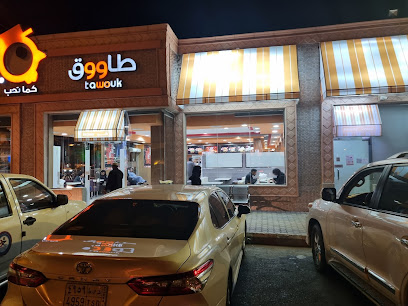
Circolo Restaurant
Experience authentic Italian cuisine amidst the stunning landscapes of AlUla at Circolo Restaurant - where tradition meets taste.
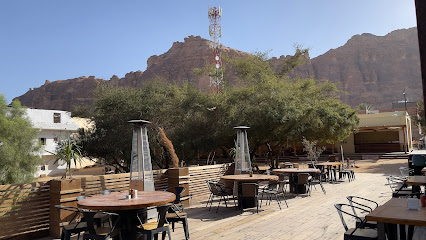
AlUla Palace Restaurant & Kitchen
Experience authentic flavors at AlUla Palace Restaurant & Kitchen amidst breathtaking landscapes in historic AlUla.
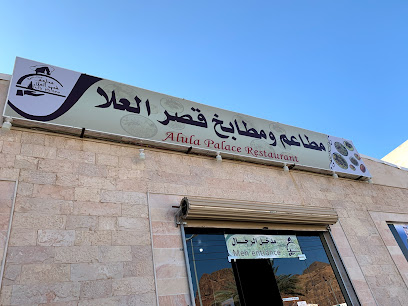
ACME
Experience authentic flavors at ACME in Old Town Tantura – where culinary heritage meets modern dining.
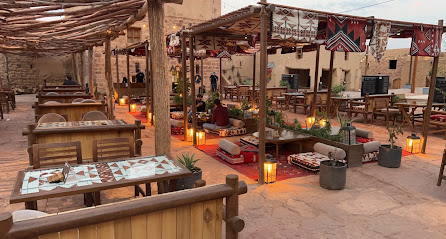
OSTURI
Discover authentic flavors at OSTURI in AlUla - where tradition meets modern culinary excellence.
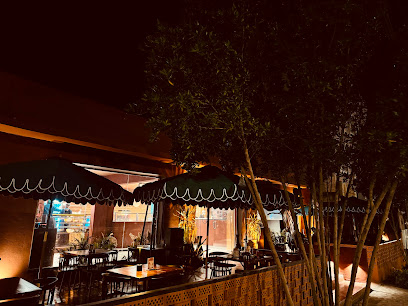
Entrecôte Café de Paris
Experience Swiss fine dining at Entrecôte Café de Paris in AlUla's historic Old Town, where culinary artistry meets stunning scenery.
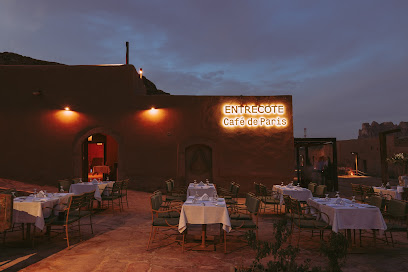
العلا مطعم وكافيه جلت قوس وتقديم المعسلات (الاراجيل)
Savor exquisite flavors at العلا مطعم وكافيه جلت قوس in AlUla – where tradition meets modernity in every dish.
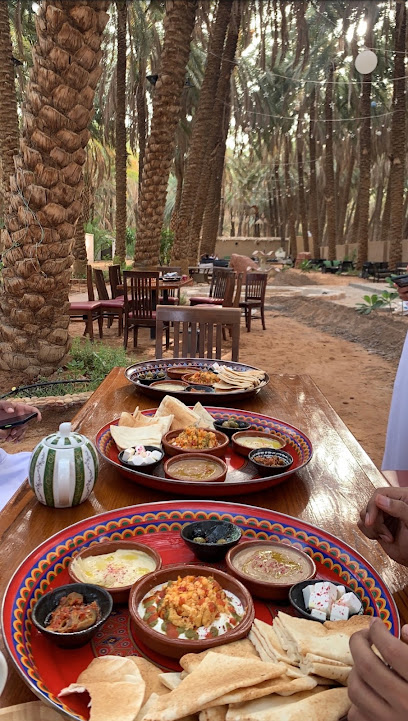
North Restaurants Bukhari
Discover authentic Saudi flavors at North Restaurants Bukhari in AlUla – an affordable gem perfect for food lovers seeking local cuisine.
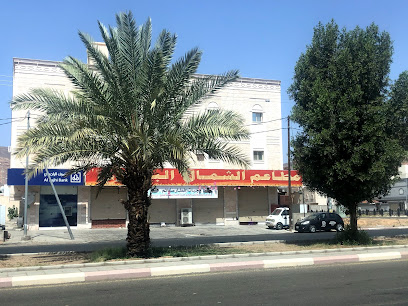
Almathaq Restaurant
Savor delicious fast food at Almathaq Restaurant in AlUla - where flavor meets convenience amidst stunning desert landscapes.
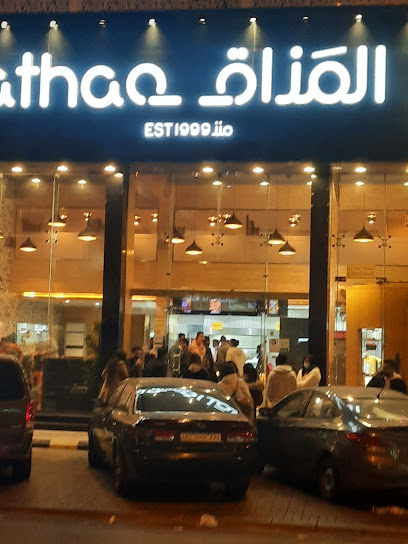
Markets, malls and hidden boutiques
AlUla Old Town
Discover AlUla Old Town: A UNESCO World Heritage site rich in history, culture, and stunning ancient architecture in Saudi Arabia.
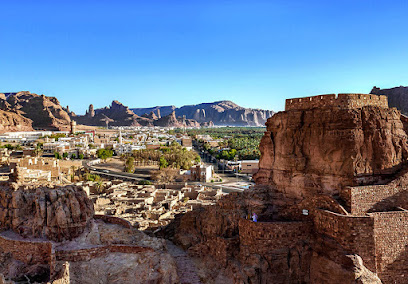
Our Habitas AlUla
Experience unparalleled luxury and serene natural beauty at Our Habitas AlUla, where stunning landscapes meet rich cultural heritage.
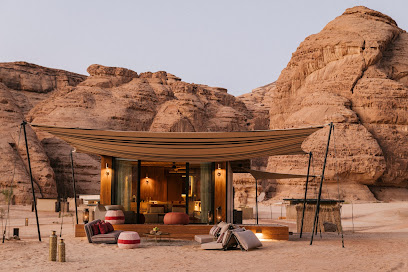
اسواق بن عيد
Discover the flavors of AlUla at اسواق بن عيد, a vibrant grocery store filled with local produce, spices, and traditional goods.
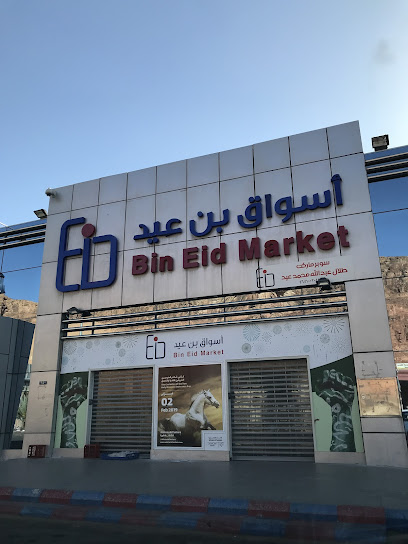
Central mass markets
Experience the vibrant shopping culture at Central Mass Markets in AlUla, where local goods and fresh produce await every traveler.
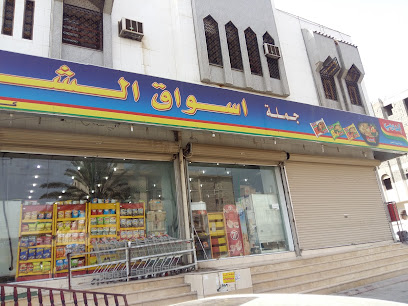
AlUla Old Town Village
Explore AlUla Old Town Village, a breathtaking blend of ancient history and stunning desert landscapes, perfect for culture and adventure seekers.
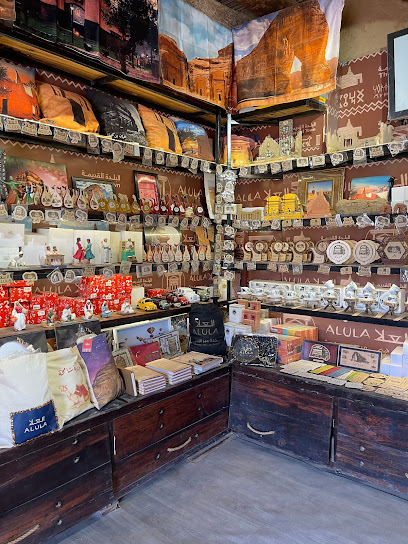
مجمع الفريد الذهبي
Explore مجمع الفريد الذهبي in AlUla for a unique shopping experience blending modern retail with local culture.
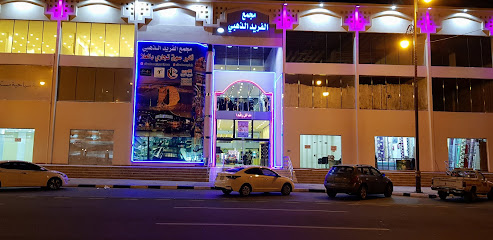
المقناص للوازم الرحلات
استكشف جمال العلا مع المقناص للوازم الرحلات، وجهتك المفضلة لمعدات المغامرات والتخييم.
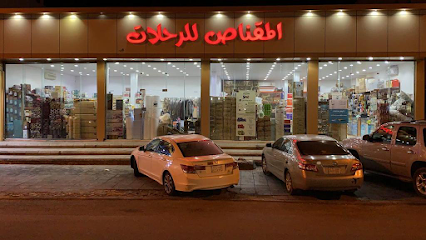
Oasis Heritage Trail
Explore the Oasis Heritage Trail in AlUla, a scenic hiking area where nature and history intertwine in stunning desert landscapes.
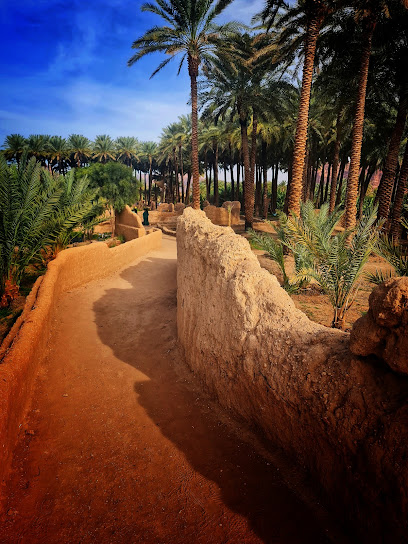
العزيزية ــ العلا
Explore Alaziziyah in AlUla for a unique blend of technology shopping and local culture amidst stunning historical landscapes.
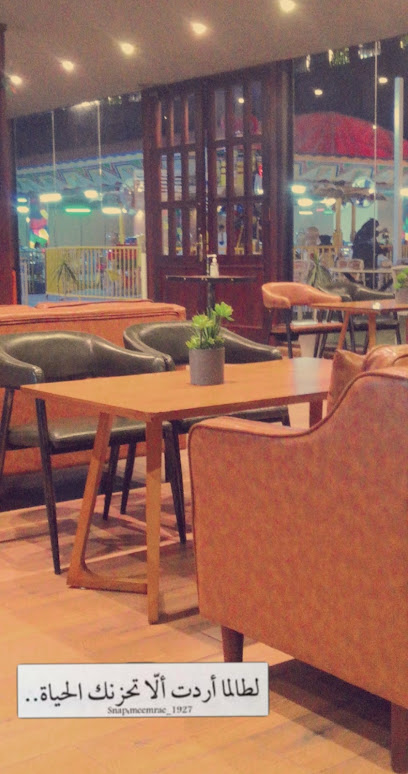
ANDALUS ALULA SUPPER MARKET
Discover the rich culinary heritage at Andalus AlUla Supper Market, where local flavors and vibrant atmosphere come together in a unique shopping experience.
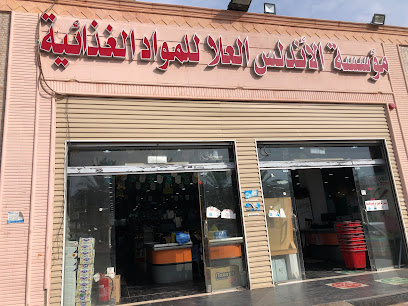
Alfrhouti electronics and home appliances
Discover top-notch electronics and home appliances at Alfrhouti in AlUla – perfect for tech enthusiasts and travelers alike.
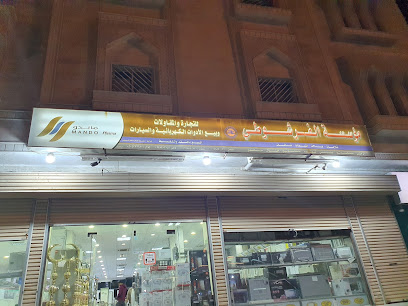
الرداء الأسود للعبايات
Explore the rich cultural heritage of AlUla through fashion at Al Ridaa Al Aswad for Abayas, a must-visit clothing store for tourists.
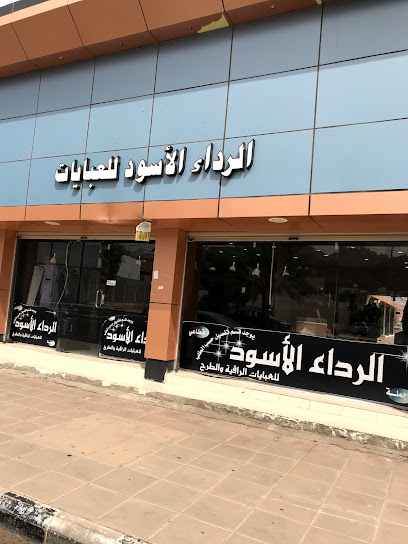
Old Town Market Street
Experience AlUla's vibrant culture at Old Town Market Street, a must-visit tourist attraction filled with shops, eateries, and local charm.
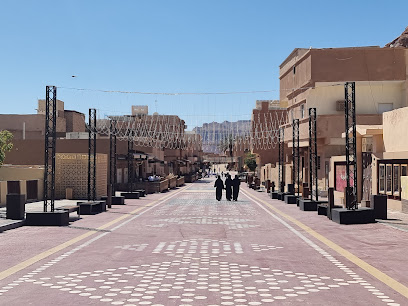
مؤسسة همس للأجهزة الإلكترونية المنزلية (Home Appliances)
Explore the best home appliance store in AlUla, featuring top-quality electronics, air conditioning units, and exceptional customer service.
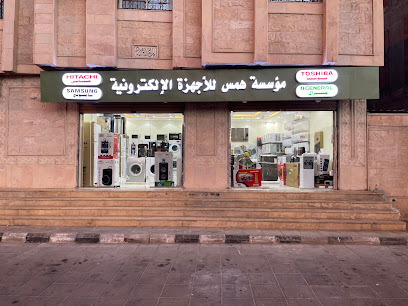
حكاية
Explore the vibrant world of local crafts and souvenirs at حكاية, AlUla's premier department store that embodies the region's rich heritage.
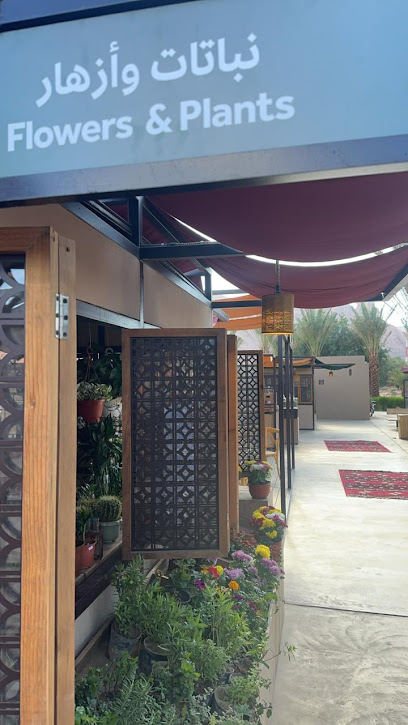
Essential bars & hidden hideouts
Kudu - Tantura
Discover delicious fast-food and traditional Saudi flavors at Kudu - Tantura, the perfect dining stop for tourists in AlUla.
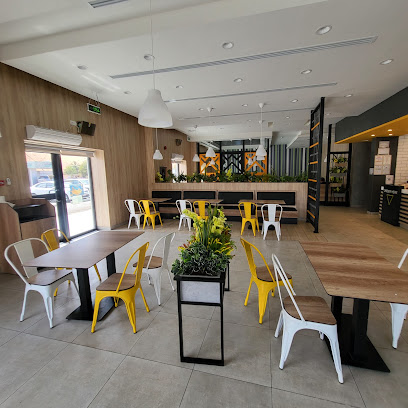
Tetra Pizza
Experience the flavors of Italy at Tetra Pizza in AlUla, where every bite of pizza is crafted with passion and served with love.
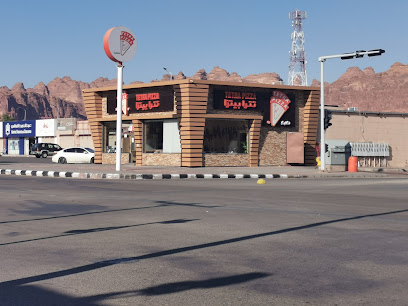
Somewhere
Discover the culinary treasures of AlUla at Somewhere, where local flavors meet exceptional dining in a stunning atmosphere.
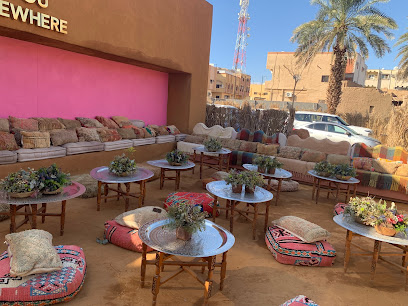
Derwas Corner Restaurant
Discover the delightful flavors of AlUla at Derwas Corner Restaurant, where authentic cuisine meets a cozy atmosphere for an unforgettable dining experience.
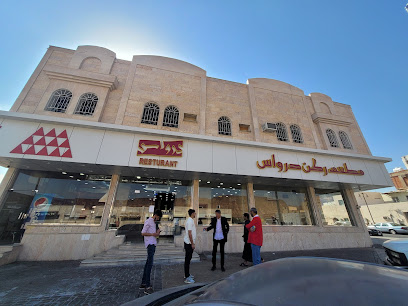
AlUla Palace Restaurant & Kitchen
Discover the culinary delights of Saudi Arabia at AlUla Palace Restaurant & Kitchen, where flavors meet heritage in a stunning setting.
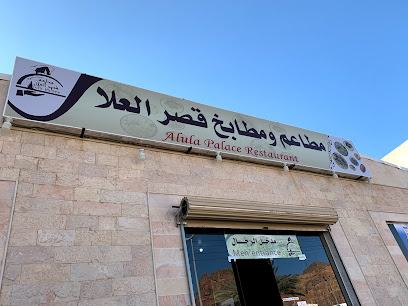
OSTURI
Discover the exquisite taste of AlUla at OSTURI, where traditional flavors meet contemporary dining in a captivating atmosphere.
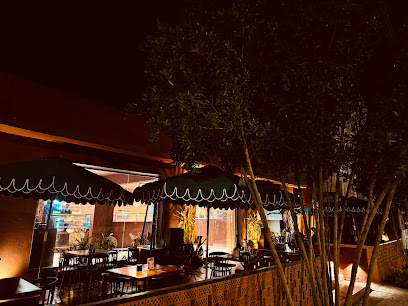
Entrecôte Café de Paris
Experience culinary excellence at Entrecôte Café de Paris in AlUla's Old Town, where Swiss flavors meet fine dining elegance in a stunning historical setting.
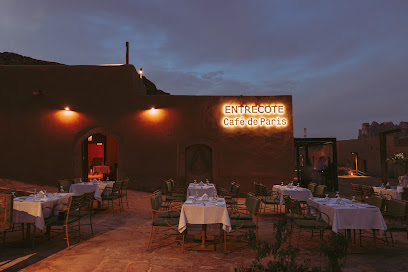
العلا مطعم وكافيه جلت قوس وتقديم المعسلات (الاراجيل)
Experience the flavors of AlUla at Jolt Qaws Restaurant and Café, where tradition meets modernity in a stunning setting.
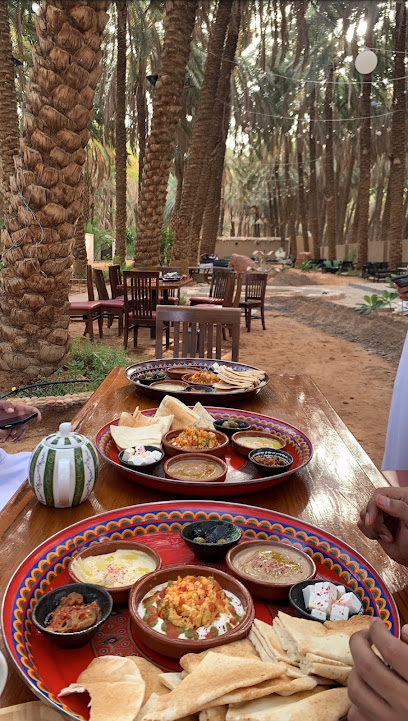
Richy Pizza
Experience the taste of Italy at Richy Pizza in AlUla, where authentic flavors meet a welcoming atmosphere for an unforgettable dining experience.
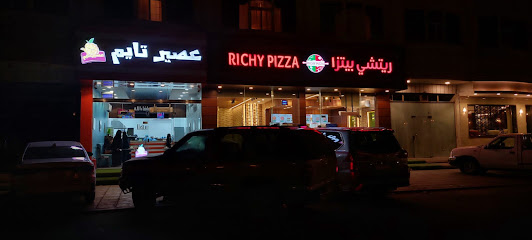
Tawlat Fayza
Discover the authentic tastes of Arabian cuisine at Tawlat Fayza in AlUla, where every dish tells a story.
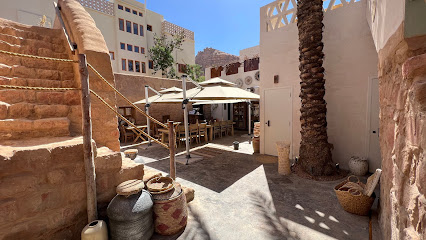
AlNakheel Cafe
Discover the delightful AlNakheel Cafe in AlUla, where authentic flavors meet a cozy atmosphere for an unforgettable dining experience.
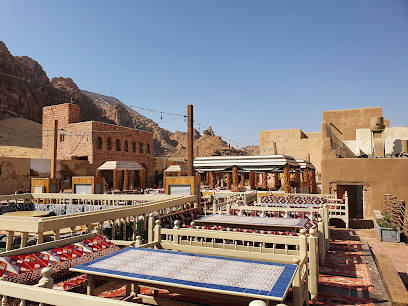
مطعم نشان
Discover the heart of Saudi flavors at مطعم نشان, where tradition meets taste in a welcoming atmosphere.
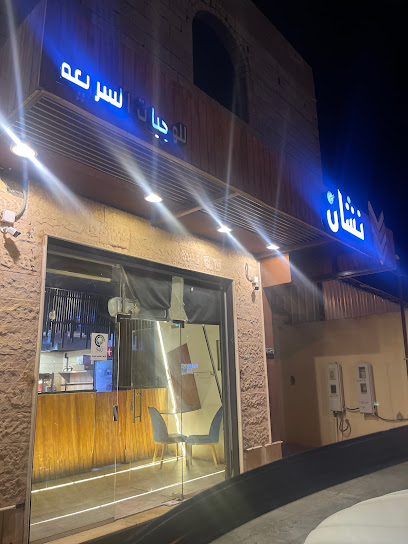
شاي مديني
Discover the vibrant cocktails and rich coffee at شاي مديني, a must-visit spot in AlUla that combines local charm with exceptional flavors.
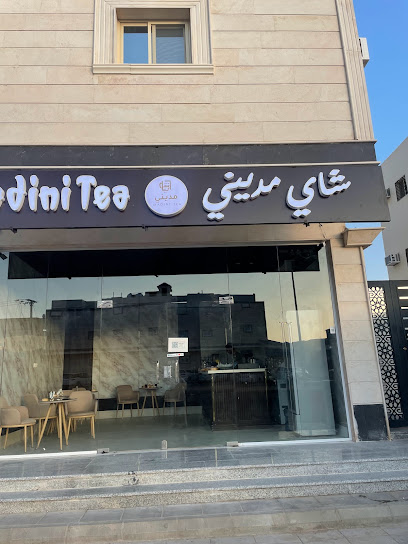
Smar AlUla
Experience a unique blend of flavors at Smar AlUla, a must-visit restaurant and lounge in the heart of AlUla's stunning landscapes.
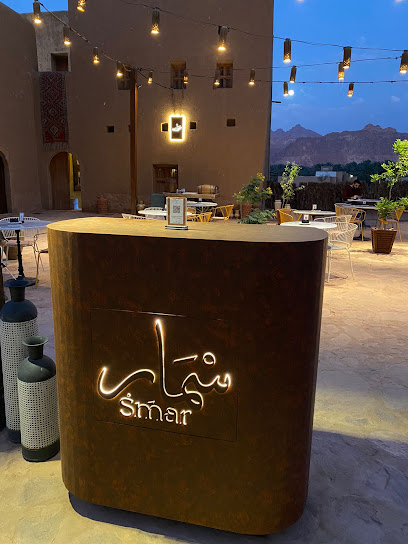
Local Phrases
-
- HelloMarhaba
[Mar-ha-ba] - GoodbyeMa'a as-salama
[Ma-a as-sa-la-ma] - YesNa'am
[Na-am] - NoLa
[La] - Please/You're welcomeMin fadlik
[Min fad-lik] - Thank youShukran
[Shuk-ran] - Excuse me/SorryAfuwan
[A-fu-wan] - How are you?Kif halak?
[Kif ha-lak] - Fine. And you?Bikhair. Wa ant?
[Bi-khair. Wa ant?] - Do you speak English?Hal tatakallam al-ingliziya?
[Hal ta-ta-kal-lam al-ing-li-zi-ya] - I don't understandAna la afham
[Ana la af-ham]
- HelloMarhaba
-
- I'd like to see the menu, pleaseA'udhu an ara al-qaima, min fadlik
[A-ud-hu an a-ra al-ka-i-ma, min fad-lik] - I don't eat meatAna la akul al-lahm
[Ana la a-kul al-lahm] - Cheers!Sahha
[Sah-ha] - I would like to pay, pleaseA'udhu an adfa', min fadlik
[A-ud-hu an ad-fa', min fad-lik]
- I'd like to see the menu, pleaseA'udhu an ara al-qaima, min fadlik
-
- Help!Musaidah!
[Mus-ai-dah] - Go away!Imshi!
[Im-shi] - Call the Police!Ad'u al-shurta!
[Ad-u al-shur-ta] - Call a doctor!Ad'u al-tabib!
[Ad-u al-ta-bib] - I'm lostAnaa da'i
[Ana da-i] - I'm illAna mareed
[Ana ma-reed]
- Help!Musaidah!
-
- I'd like to buy...A'udhu an ashtar...
[A-ud-hu an ash-tar...] - I'm just lookingAna faqat adhur
[Ana fa-qat a-dhur] - How much is it?Kam thamanuh?
[Kam tha-ma-nuh] - That's too expensiveHatha ghali jiddan
[Ha-tha gha-li jid-dan] - Can you lower the price?Hal tastatiu tanzil as-si'ar?
[Hal tas-ta-ti-u tan-zil as-si-ar]
- I'd like to buy...A'udhu an ashtar...
-
- What time is it?Kam as-sa'a?
[Kam as-sa-a] - It's one o'clockAl-wahid
[Al-wa-hid] - Half past (10)Nisf al-ashara
[Nisf al-a-sha-ra] - MorningSabaah
[Sa-baah] - AfternoonDuhur
[Du-hur] - EveningMasa
[Ma-sa] - YesterdayAms
[Ams] - TodayAl-yawm
[Al-yawm] - TomorrowGhadan
[Gha-dan] - 1Wahid
[Wa-hid] - 2Ithnan
[Ith-nan] - 3Thalatha
[Tha-la-tha] - 4Arba'a
[Ar-ba-a] - 5Khamsa
[Kham-sa] - 6Sitta
[Sit-ta] - 7Sab'a
[Sab-a] - 8Thamania
[Tha-ma-nia] - 9Tis'a
[Tis-a] - 10Ashara
[A-sha-ra]
- What time is it?Kam as-sa'a?
-
- Where's a/the...?Ayna al...
[Ay-na al...] - What's the address?Ma huwa al-`anwan?
[Ma hu-wa al-`an-wan] - Can you show me (on the map)?Hal tastatiu an turani (ala al-kharīta)?
[Hal tas-ta-ti-u an tu-ra-ni (a-la al-kha-ri-ta)] - When's the next (bus)?Mata huwa al-bus al-qadim?
[Ma-ta hu-wa al-bus al-qa-dim] - A ticket (to ....)Tiqat (ila ...)
[Ti-qat (i-la ...)]
- Where's a/the...?Ayna al...
History of Al Ula
-
Al Ula's history dates back to the 6th century BCE when it was known as Dedan. It was an important center for the ancient Dedanite and Lihyanite civilizations, who were known for their wealth and power due to their control over the trade routes that traversed the Arabian Peninsula.
-
By the 1st century BCE, Al Ula became part of the Nabatean Kingdom. The Nabateans, famous for their rock-cut architecture, left a lasting mark on the region. The city of Hegra (modern-day Mada'in Saleh), located near Al Ula, became the southernmost city of the Nabatean Kingdom and is home to numerous well-preserved tombs and monuments.
-
With the spread of Islam in the 7th century CE, Al Ula found itself at a crossroads of the new Islamic world. The city served as a key stop for pilgrims traveling to Mecca and Medina. This period saw the construction of numerous mosques, forts, and other infrastructure to support the increasing number of pilgrims.
-
In the 16th century, Al Ula came under the control of the Ottoman Empire. The Ottomans built a formidable fort in the city to protect their interests and ensure the safety of the pilgrimage routes. This period also saw the construction of the Hejaz Railway in the early 20th century, which passed through Al Ula and was intended to facilitate the Hajj pilgrimage and strengthen the Ottoman grip on the region.
-
In recent decades, Al Ula has garnered international attention for its rich archaeological heritage and stunning landscapes. The Saudi government has made significant efforts to preserve and promote the area's historical and cultural significance. The launch of the Al Ula Vision in 2017 aims to transform the region into a global tourism destination, with a focus on sustainable development and heritage conservation.
Al Ula Essentials
-
Al Ula is located in the northwest region of Saudi Arabia. The nearest major airport is Prince Abdul Majeed bin Abdulaziz Airport (ULH), which is about 25 kilometers from Al Ula. The airport offers domestic flights primarily from Riyadh and Jeddah. International travelers can fly into King Abdulaziz International Airport in Jeddah or King Khalid International Airport in Riyadh and then take a connecting flight to Al Ula. Alternatively, you can drive from these cities; the journey takes approximately 10 hours from Riyadh and 7 hours from Jeddah.
-
Al Ula is relatively small, and many of its main attractions are within a short driving distance. Car rental services are available at the airport and within the city, which is highly recommended for the flexibility it offers. Taxis are also available, but they can be expensive for longer trips. There is no public bus system within Al Ula, so a rental car or taxi services are your best options for getting around.
-
The official currency in Saudi Arabia is the Saudi Riyal (SAR). Credit cards are widely accepted in hotels, restaurants, and larger shops. However, it is advisable to carry some cash for smaller establishments and markets. ATMs are available in Al Ula, and you can withdraw cash using international credit or debit cards. It is advisable to inform your bank of your travel plans to avoid any issues with card transactions.
-
Al Ula is generally a safe destination for tourists. Crime rates are low, but it is always best to take standard precautions. Avoid walking alone at night in unfamiliar areas, keep an eye on your belongings, and be cautious when interacting with strangers. There are no specific high-crime areas targeting tourists, but it is always best to stay vigilant and aware of your surroundings.
-
In case of emergency, dial 997 for medical emergencies and 999 for police assistance. The local hospital, Al Ula General Hospital, is well-equipped to handle medical emergencies. Pharmacies are available in the town for over-the-counter medications. It is recommended to have travel insurance that covers medical emergencies. Make sure to know the location of your country's embassy or consulate in Saudi Arabia for additional assistance.
-
Fashion: Do dress modestly; men and women should cover their shoulders and knees. Women should consider wearing an abaya in public. Religion: Do respect local customs and traditions; avoid public displays of affection. Public Transport: There is no public transport system in Al Ula, so always plan your travel accordingly. Greetings: Do greet people with a handshake; use 'As-Salaam-Alaikum' as a greeting. Eating & Drinking: Do try local delicacies and accept food offerings graciously. Don't eat in public during the fasting hours of Ramadan.
-
To experience Al Ula like a local, visit the local markets where you can buy traditional Saudi goods and fresh produce. Engage with locals, as they are often friendly and willing to share stories about the area's history and culture. Don't miss the Al Ula Old Town, Hegra (Madain Saleh), and the Elephant Rock. For a unique experience, consider taking a guided tour to explore the ancient rock art and inscriptions that are scattered throughout the region.
Nearby Cities to Al Ula
-
Things To Do in Tabuk
-
Things To Do in Yanbu
-
Things To Do in Medina
-
Things To Do in Marsa Alam
-
Things To Do in Sharm El Sheikh
-
Things To Do in Hail
-
Things To Do in Dahab
-
Things To Do in Wadi Rum
-
Things To Do in Hurghada
-
Things To Do in Sakakah
-
Things To Do in El Gouna
-
Things To Do in Aqaba
-
Things To Do in Eilat
-
Things To Do in Ma'an
-
Things To Do in Petra









